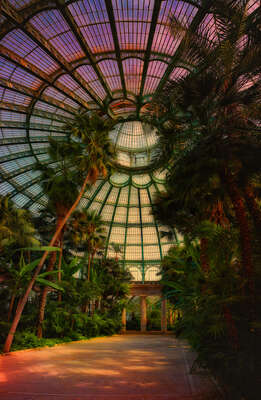

- Exclusive offers
- Inspiring new releases
- Personal invitations to Art Events

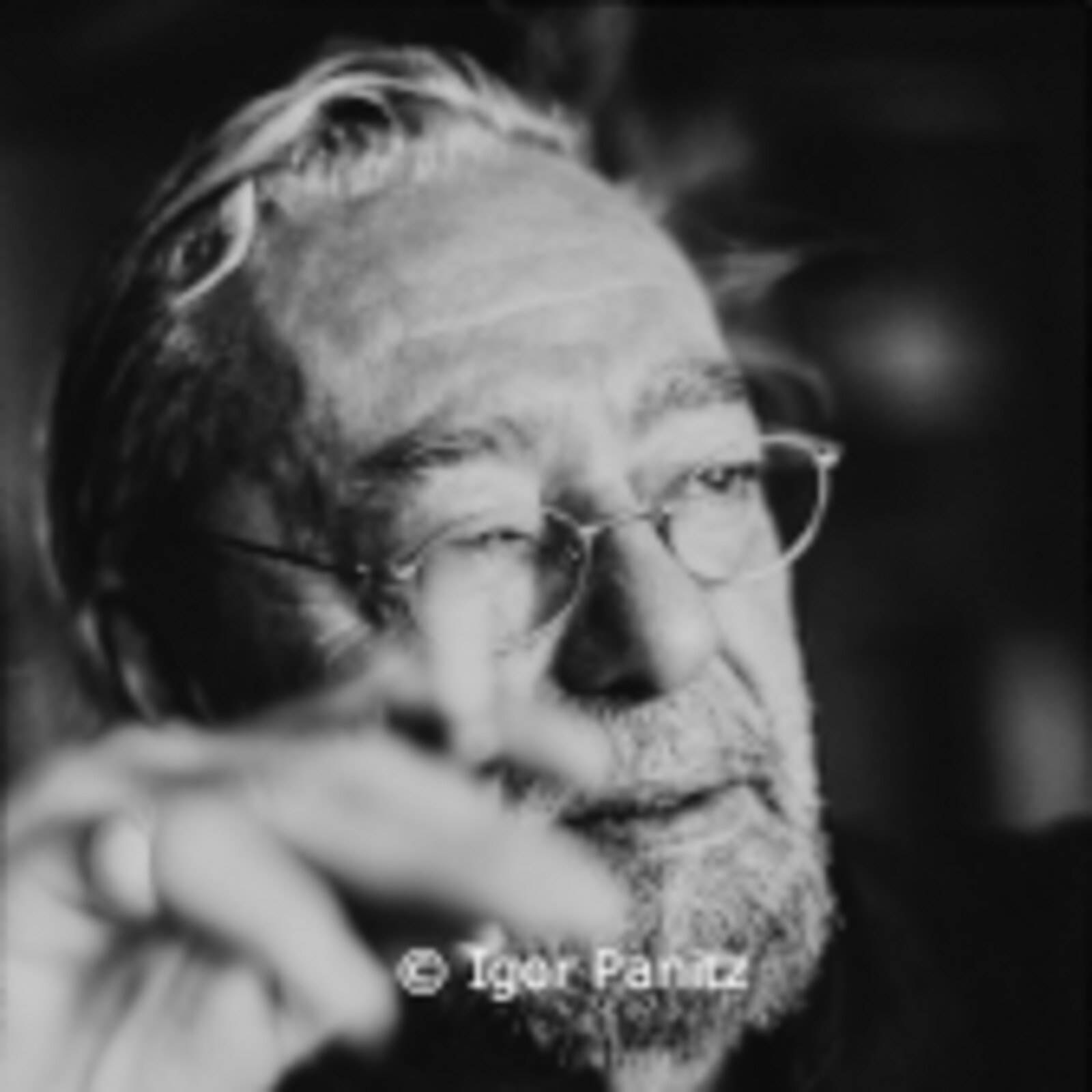
'Over the course of my many visits to Venice, I have gradually learned about a place previously unknown to me: the Venice of the Venetians. It feels as if one is on the trail of a world long-since… Read more
Intro Bio Exhibitions Interview Video


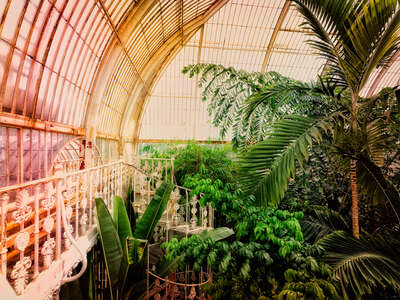

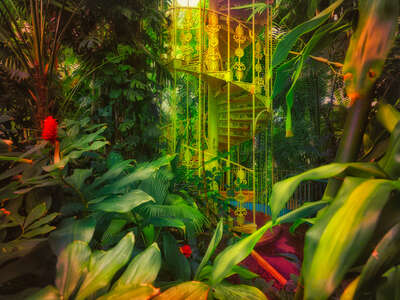

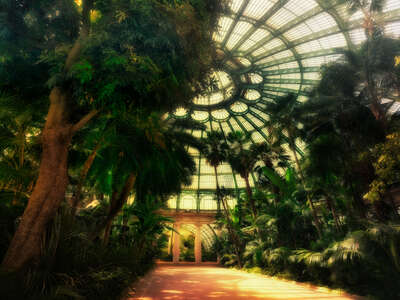

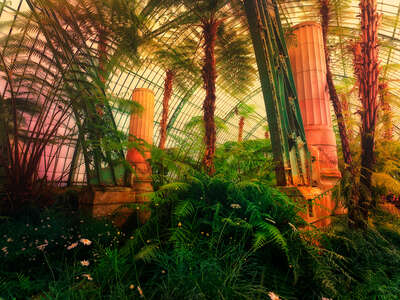

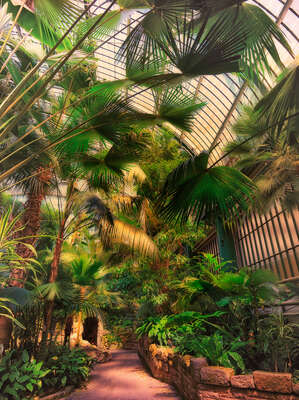

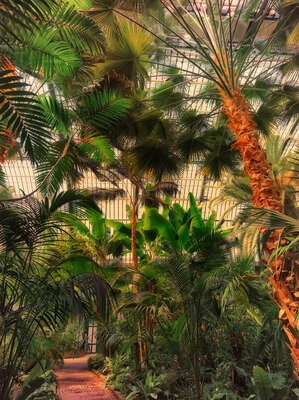

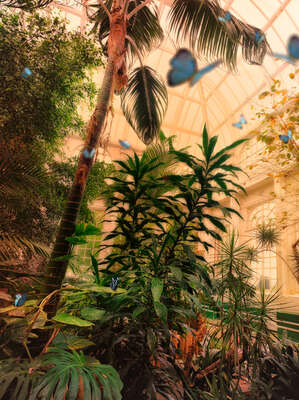

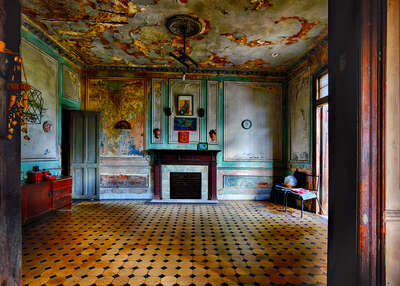

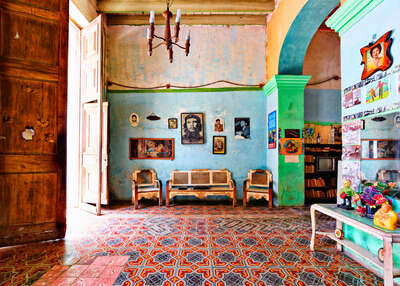

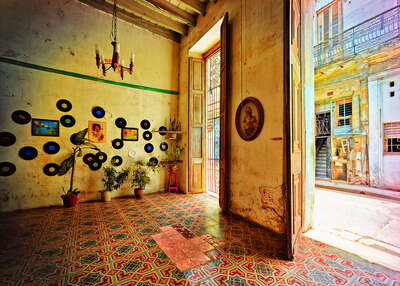

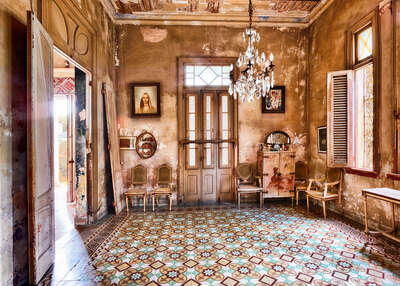

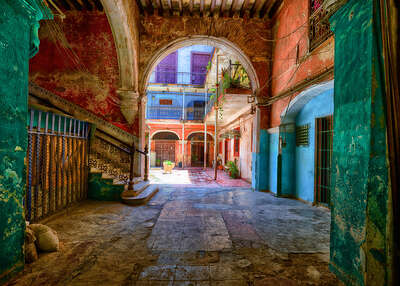

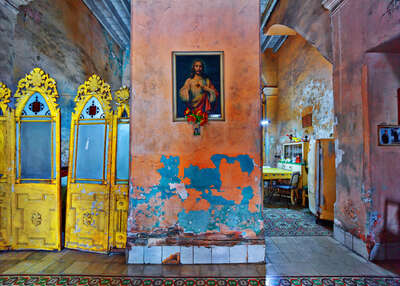

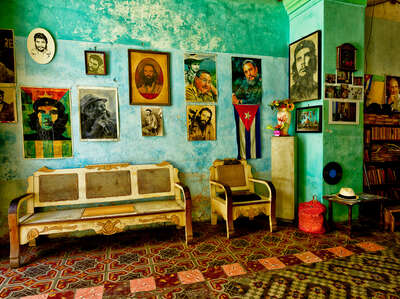

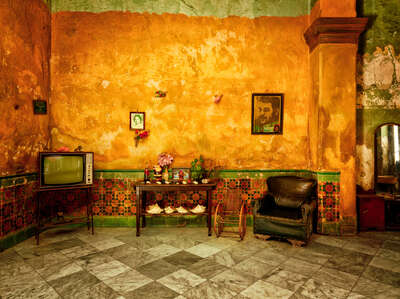

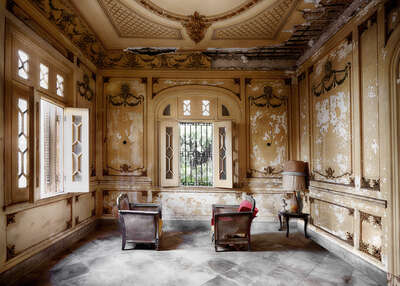

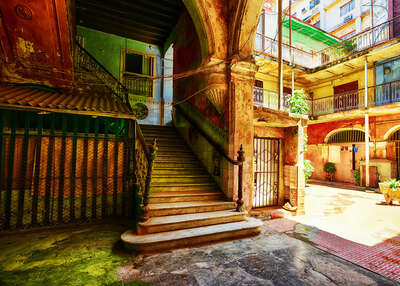

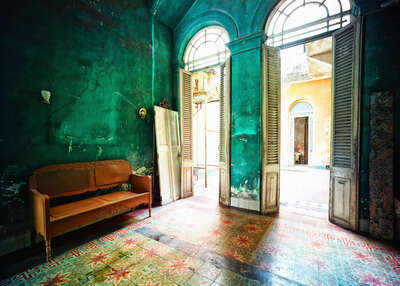

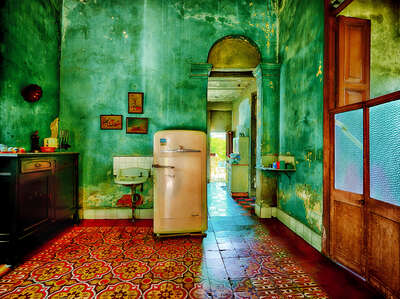

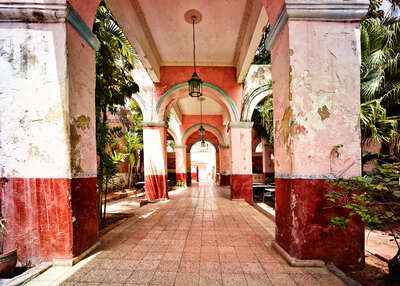

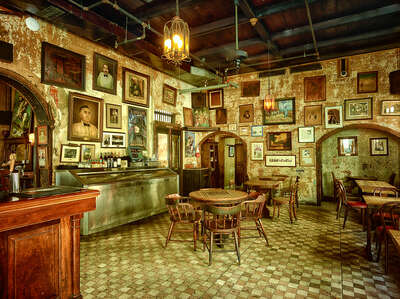

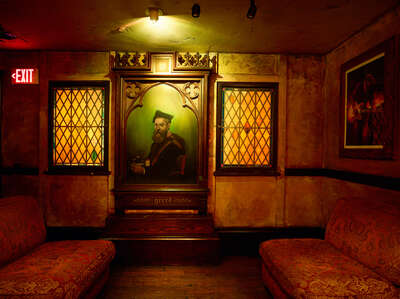

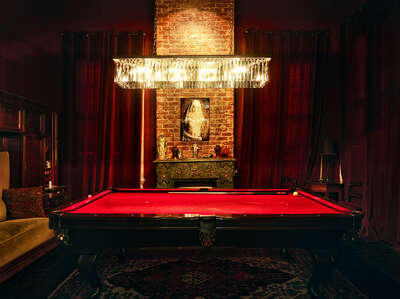

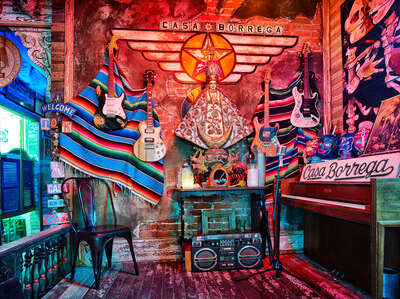

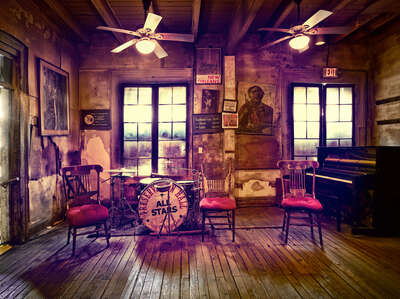

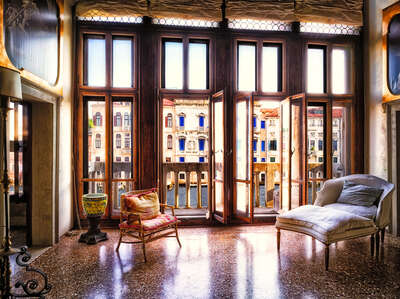

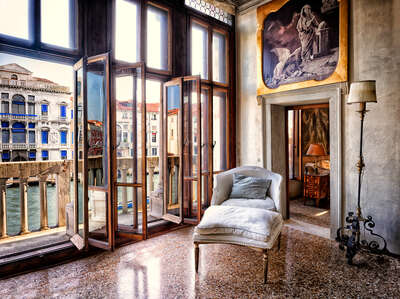

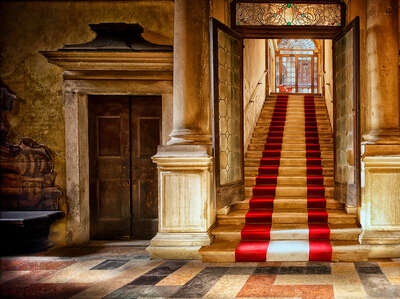

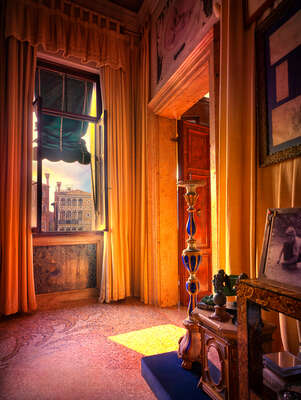

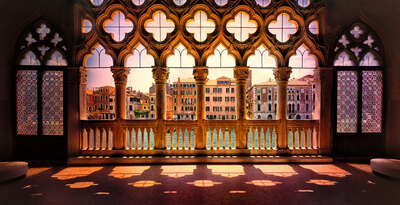

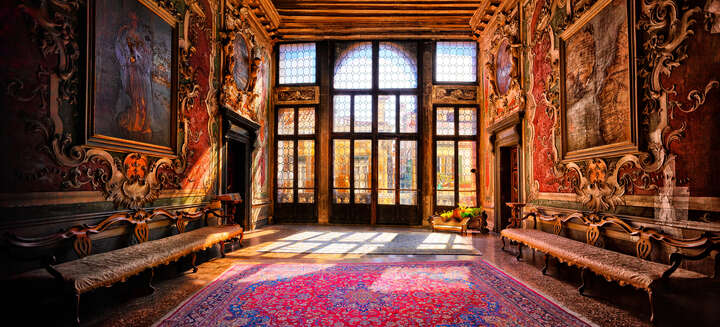
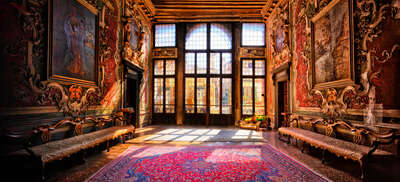
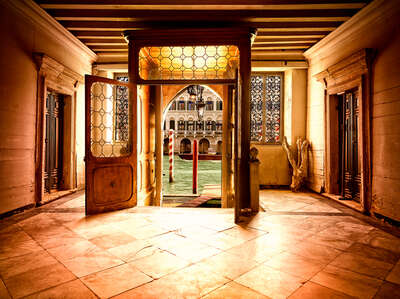

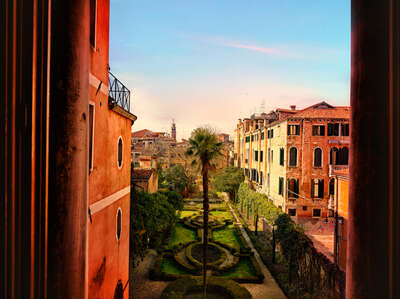

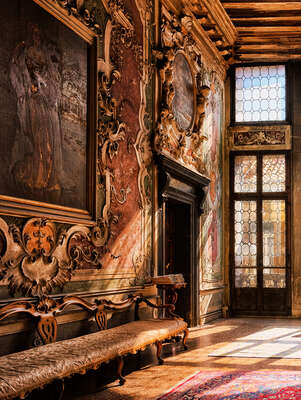

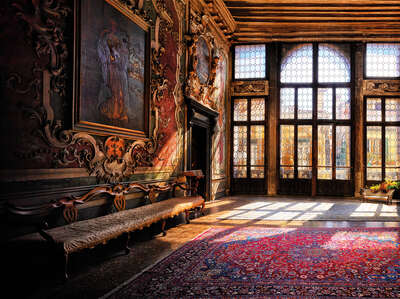

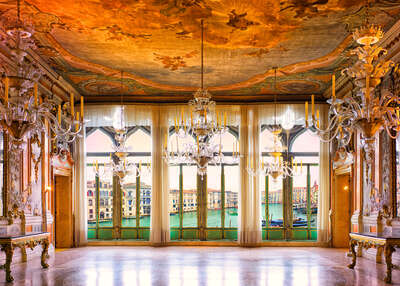

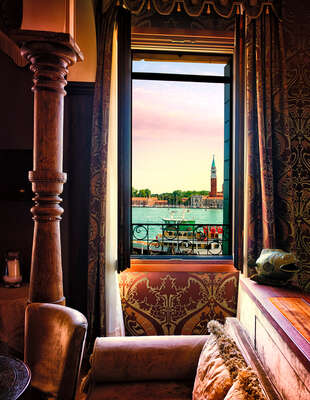

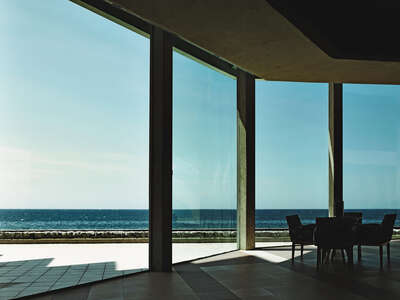

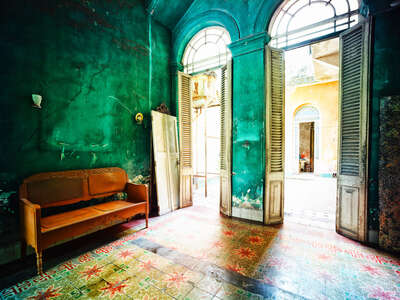

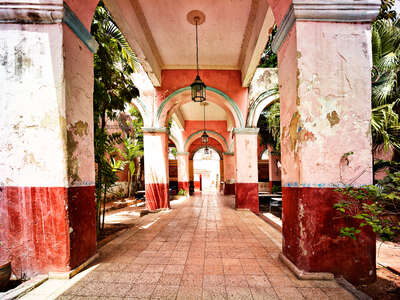

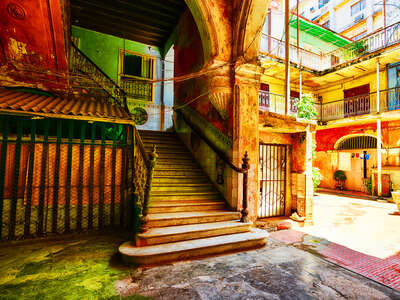

'Over the course of my many visits to Venice, I have gradually learned about a place previously unknown to me: the Venice of the Venetians. It feels as if one is on the trail of a world long-since submerged.'
Venice is world famous for its art and history: countless visitors from all over the world are drawn to the narrow streets, St. Mark's Square, and the spectacular exhibitions of the Biennale. However, Werner Pawlok shows us the lagoon city from another, lesser-known perspective. He gives us an insight into the innermost parts of Venice, which remain hidden from most visitors. Through this, he shows art and history from a surprisingly private perspective, far away from tourist crowds and postcard-worthy views. Pawlok succeeded in gaining access to the most sublime and impressive palazzi in the city, staging their interiors in his distinctive style.Using bold colors, he captures Venetian history reflected in the architecture and ornate furnishings of the houses. Centuries-old heritage appears in a new light and stimulates the viewer's imagination to fill the vacant spaces with historical personalities and intriguing anecdotes. Pawlok's works are photographic time travels with unique charm and an impressive tribute to La Serenissima and its flourishing beauty.
Greenhouses
The botanical gardens of major European cities are a distinct cultural asset; they combine 18th- and 19th-century architectural masterpieces with a fascination for exotic plants. Culture and nature collide to create an immersive experience, transporting visitors on a journey around the world. In his Greenhouses series, Werner Pawlok reacquaints viewers with these floral palaces and allows a wider audience to enter these extraordinary spaces. The photographer captures magical, painterly impressions of renowned locales, including the Royal Gardens in Brussels (which are only open to the public once a year, but were reopened specifically for this project), the legendary Kew Gardens in London, and Frankfurt’s Palm Gardens. The biggest challenge was taking pictures in high humidity without the lens fogging up; However, Pawlok used this as incentive to follow his artistic intuition and capture the dynamic atmosphere of the environment.
Cuba - Expired
Can one make joie de vivre visible in a room devoid of people? Werner Pawlok can. In Havana’s decaying houses, the photographer captures the Caribbean city’s morbid charm as well as a sense of the Havanans’ vitality.
Former glory and traces of the decline are side by side in Werner Pawlok’s Havana photos. Palatial residences from the old sugar aristocracy seem to entrust him, revealing their weathered countenances. The beauty of the Cuban capital and the history of Havana have bittersweet aftertastes. It is a lost world, left to decay. Pawlok brings the viewer under the spell of the old city, in which former luxury is felt merely as a relic of the past.
ABOUT THE ARTIST
A self-taught photographer from Stuttgart, Germany, Werner Pawlok first picked up a camera when he was sixteen in order to take pictures of his idol, Jimi Hendrix, onstage in 1969. Since then, he has been looking through a lens into the depths of rooms and souls. Even if the people in front of the camera would prefer otherwise, Pawlok captures their very essence in his one-of-a-kind photographs.
Pawlok’s work enjoys wide recognition around the world, with numerous international awards, solo exhibitions, and group exhibitions with great artists such as Warhol, Richter, Mapplethorpe, and Polke. Pawlok’s career began in 1977, when he opened his first studio in Esslingen, Germany. Sever years later, he moved to Stuttgart. In 1988, he went to New York for a year. In addition to his haunting black and white Polaroid portraits of authors, his signature style is most recognisable in his “Photography Paintings” or in his celebrity and fashion photographs.
TECHNIQUE
Werner Pawlok is self-taught. That does not just mean that he learned all his techniques by himself, but also that he is the kind of artist who will not be stopped because he cannot do something or because something does not appear to be possible. He managed to get ahold of one of two specialised large-format Polaroid cameras in existence. He takes this same approach to his subjects: unafraid and open to all possible outcomes.
In the Polaroid transfers, Pawlok combines painting and photography. He developed a process of transferring the large-format Polaroid negatives onto hand-made paper and then finishing them by painting on them. Pawlok’s style is variety. He meets every new challenge with curiosity and openness.
| 1953 | Born in Stuttgart, Germany |
| 1977-78 | Lecturer at Academy of Arts, Stuttgart, Berlin |
| 1980 | Founder of the first gallery for photography in south Germany |
| 1988-89 | First Studio in New York, USA |
| Lives and works in Stuttgart, Germany |
| 2021 | Master Pieces, MAC 2 Museum Art + Cars, Singen, Germany |
| 2018 | Master Pieces, Grand Basel, Basel, Switzerland |
| Cuba – expired, Lumas Gallery, Singapore; Melbourne, Australia | |
| 2016 | Cuba – expired, Lumas Gallery, Singapore; Dubai, UAE, Berlin, Germany; Vienna, Austria |
| 2015 | Cuba – expired, Lumas Gallery, Moscow, Russia; Riga, Lettland; Mailand, Italy, Salzburg, Austria |
| 2014 | Cuba – expired, Lumas Gallery, Amsterdam, Netherlands; Paris, France, Dusseldorf, Germany |
| 2013 | Cuba – expired, Lumas Gallery, London, UK Five Days Paris, Rolls Royce London, London, UK views – faces of literature, Art Week Hamburg Brahms Kontor, Hamburg, Germany |
| 2012 | Werner Pawlok Fotografien, Kunsthalle Messmer, Riegel, Germany views – faces of literature, Literaturhaus Stuttgart, Stuttgart, Germany |
| 2010 | moving cities, G3 Gallery, Hamburg, Germany |
| 2009 | Werkschau / Retrospektive, Galerie Andreas Baumgartl, Munich, Germany |
| 2007 | Views - faces of literature, Porsche, Stuttgart, Germany |
| 1999 | Dantes Commedia, Galerie Tobias Hirschmann, Frankfurt, Germany |
| 1998 | Master Pieces, Museum of Modern Art, Ljubljana, Slovenia |
| 1997 | Dantes Commedia, Galerie Benden + Klimczak, Cologne, Germany Master Pieces, Art Festival, Birmingham, USA |
| 1996 | Transfers, Gallerie Raab Boukamel, Lonodn, UK; Contemporary Art Gallerie Zurich, Switzerland |
| 1994 | Crying Animals, Galerie Hans Mayer, Dusseldorf, Germany |
| 1993 | Stars & Paints, Musée de l’Elysée, Lausanne, Switzerland Transfers, Second Photobienale India, Neu Dheli, India |
| 1992 | Master Pieces by Mercedes-Benz (tour opening), Mercedes-Benz Museum, Stuttgart, Germany Transfers, Musée de l’Elysée, Lausanne, Switzerland |
| 1991 | Photography Paintings, Fotografie Forum, Frankfurt; Kulturverein Zehntscheuer Rottenburg; Forum Böttcherstraße Bremen; Kunstverein Heidelberg, Heidelberg; Städtische Galerie Erlangen, Photogalerie Bordenau, Neustadt; Galerie 6x7, Mainz, Germany; Kunsthalle Innsbruck II, Innsbruck, Austria |
| 2022 | Galerie Stihl, Gunter Sachs Kamerakunst, Waiblingen, Germany |
| 2021 | Warum denn in die Ferne... oder In 18 Büchern..., Kunstverein Esslingen, Esslingen, Germany LOOK!, Museum Marta Herford, Herford, Germany |
| 2019 | Daguerreotypie, Autochrom, Polaroid.1/1“ , Pushkin Museum of Fine Arts, Moscow, Russia Persona, Estudio Pablo de Lillo, Oviedo, Spain Gunter Sachs Kamerakunst, Kunsthalle, Schweinfurt, Germany |
| 2015 | Le Bord de Mondes, Palais de Tokyo, Paris, France |
| 2014 | Blütezeit, Kunstsammlung DZ Bank, Frankfurt, Germany |
| 2013 | Sammlung Gunter Sachs, Kunsthalle Schweinfurt, Schweinfurt, Germany Leigh Bowery, Otherness, Espace Culturel Louis Vuitton, Paris, France |
| 2012 | XTRAVAGANZA, Staging Leigh Bowery, Kunsthalle Vienna, Vienna, Austria Polaroid, The Finnish Museum for Photography, Helsinki, Finnland |
| 2011 | Photography in the fast lane, Galerie der Stadt Sindelfingen, Sindelfingen, Germany Light my fire, Nimbus Group Mock-up, Stuttgart, Germany Psychadelic Record Sleeves, Duncan Smith Gallery, Stuttgart, Germany |
| 2009 | Australia‘s Bushfire Exhibition, McCulloch Gallery, Melbourne, Australia 25 Jahre Fotoforum Frankfurt, Fotoforum Frankfurt, Frankfurt Germany |
| 2008 | The big picture I + II, Oliver Gordon Gallery, Toronto, Kanada |
| 2006 | Accrochage, Gallery Andreas Baumgartl, Munich, Germany |
| 2003 | Photography in Advertising, Design Center, Malmö, Schweden |
| 2000 | Images Beyond the naked eye, Museo, Den Haag, Niederlande |
| 1998 | Augenlust, Kunsthaus, Hanover, Germany |
| 1996 | Rosen, Tulpen, Nelken, Gallery Tobias Hirschmann, Frankfurt, Germany; Contemporary Art Gallery, Zurich, Switzerland natur¿, Kunst- und Ausstellungshalle der Bundesrepublik Deutschland, Bonn, Germany Liebe und Poesie, Gallery Tobias Hirschmann, Frankfurt, Germany |
| 1993 | Milk Glas, Chicago Athenaeum Museum of Design, Chicago, USA Columbus / Artists United for Nature, Sony Headquater, Tokyo, Japan |
| 1991 | Coulour, Hamilton ́s Gallery, London, UK Das Goldene Zeitalter, Württembergischer Kunstverein, Stuttgart, Germany |
When did you become interested in art? How did it all begin?
For me, art is first and foremost a feeling. I see art as life, not as galleries, collectors, money, etc. Every day brings new experiences which resonate with me and eventually transform into energy, which I use to create images. I’ve experienced this feeling since youth and not much has changed since. It all began with a camera that my parents gave me as a birthday present when I was little. For me this was a direct way to transform observations into pictures.
How would you describe your work process?
Generally, my work process is always different. It depends on the specific project I’ve chosen. Before I start a series, I decide which technical equipment I'm going to use – and, at this stage, I question whether any new technology is available that I’d like to incorporate into my process. I love the risk involved and how it keeps things new and interesting. It’s important for me to fully understand the work process so that I can implement it properly an achieve my vision.
Who inspires you?
During a recent trip to Venice, I had the opportunity to see the Uncertainties Installation in the Spanish Pavilion at the Architecture Biennale, and I was quite impressed. The floor-to-ceiling exhibition, created using thousands of pieces of paper related to the pandemic and the Spanish real estate bubble, maintains a sense of lightness despite its density. It was created by Itzar Okariz and Sergio Prego.
Which artists/works of art are you particularly impressed with at the moment?
Classic photographers never fail to impress me. Man Ray, Erwin Blumenfeld and Irvin Penn, to name a few.
What distinguishes a good work of art?
If I am satisfied with the result of my creative process and of course, if it is appreciated by exhibition visitors. When I actually see my pictures hanging in museums such as the Palais de Tokyo, the Espace culturel of Louis Vuitton, the Musée de l'Elysée in Lausanne, or the Kunsthalle in Vienna, it is a nice confirmation of my work.
What project are you working on at the moment?
I am currently working on my new book New Orleans UNDERCURRENT. Now that my last two books have been completed – Dimore Veneziane, my photographic love letter to Venice, and the book Greenhouses CATHEDRALS FOR PLANTS, a journey through Europe to the most beautiful glasshouses – New Orleans is completely mesmerizing me. It is undoubtedly one of the most fascinating cities in the United States. The vibrant metropolis of the South is rich in history, culture and culinary delights. Experiencing its unique atmosphere is an adventure for all the senses. It gives me great pleasure to write a book about it.
What is the purpose of art?
Above all, to inspire!
Does art bring about happiness?
It is not art, but life that should make one happy, and art is an essential part of life!
Visit LUMAS USA!
Delivery to your country is not possible from this site.
If you would like to place an order, please visit LUMAS USA.